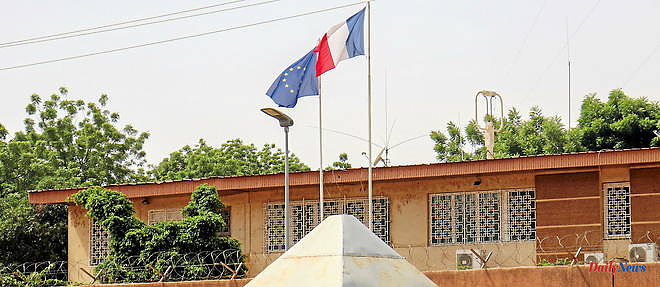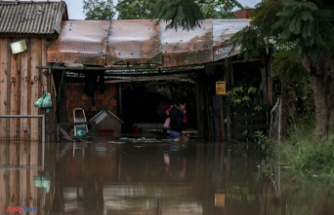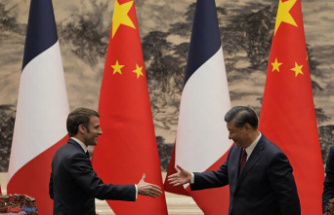The French ambassador to Niger left Niamey early Wednesday morning, a demand from the military in power to which Paris finally gave in after several weeks of standoff. The ambassador, Sylvain Itté, “and six collaborators left Niamey around 4 a.m.,” a diplomatic source told AFP. Sylvain Itté arrived in Paris early this afternoon. The head of French diplomacy, Catherine Colonna, "received him at the Quai d'Orsay to thank him for his action and that of the teams around him in the service of our country, in difficult conditions", underlines the ministry of Foreign Affairs in a written statement to AFP.
On Sunday evening, French President Emmanuel Macron announced the return to Paris of Sylvain Itté “in the coming hours”. The next day, the Nigerien regime, which came to power through a putsch on July 26, said it expected “this declaration to be followed by official acts emanating from the competent French authorities.” The military had been demanding Sylvain Itté's departure from the country since the end of August. They had withdrawn his diplomatic immunity and visa, but Paris has so far refused to recall him.
France has affirmed since the coup that it does not recognize the legitimacy of the military in power and that its interlocutor remains the overthrown president Mohamed Bazoum. Emmanuel Macron also reaffirmed his “support” after the departure of Sylvain Itté. He underlined “France's determination to continue its efforts with the heads of state of ECOWAS and its European and international partners for a return to constitutional order in Niger,” said the Élysée.
Emmanuel Macron also announced on Sunday that the 1,500 French soldiers deployed in Niger in the anti-jihadist fight would leave the country by the end of the year, another request from the Niamey regime. According to Emmanuel Macron, France is thus ending “its military cooperation with the de facto authorities of Niger, because they no longer want to fight against terrorism”.
The military, who celebrated these announcements as "a new step towards the sovereignty of Niger", however wanted this withdrawal to take place "within a negotiated framework and by mutual agreement for better efficiency". Niger, like its neighbors Burkina Faso and Mali, has been the target of recurring jihadist attacks on its soil for several years.
Relations between Niamey and Paris, its former colonial power, have been at their lowest point since the July 26 coup. Demonstrations and rallies for the withdrawal of French troops in Niger have brought together tens of thousands of people in the capital in recent weeks. It is the third Sahelian country to request the withdrawal of French troops in less than two years after Mali and Burkina Faso, also led by soldiers who came to power through putsches.
“France did not know how to withdraw at the right time and wanted to continue to play the leader in a context where the sociological environment has changed significantly”, and with it the way in which it is perceived as a former colonizer , analyzes Fahiraman Rodrigue Koné, senior researcher at the Institute for Security Studies (ISS), specialist in the Sahel.
“France must completely rethink its presence in Africa, not just in the Sahel. We have very young, uninhibited populations who have access to all the information about what is happening in the world, France is no longer the number 1 reference for many,” he adds. The United States, which has 1,100 soldiers in Niger, has indicated that it is evaluating its options regarding a possible withdrawal. Last week, Germany warned that its hundred soldiers deployed in Niger could also withdraw if France chose this option.












